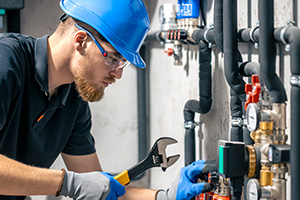 Introduction to Commercial Plumbing Repairs
Introduction to Commercial Plumbing Repairs
Commercial properties rely heavily on their plumbing systems to support daily operations, making the occurrence of plumbing issues a significant concern for business owners and facility managers. This section introduces the importance of proactive maintenance in commercial plumbing systems and outlines the top five most common plumbing repairs encountered in commercial properties.
Commercial plumbing systems are complex networks of pipes, fixtures, and appliances that deliver essential services such as water supply, drainage, and sanitation. Due to the high volume of usage and demanding conditions in commercial settings, these systems are susceptible to wear and tear, leading to various maintenance and repair needs over time.
Understanding the Impact of Plumbing Issues
Plumbing issues in commercial properties can have far-reaching consequences, affecting business operations, occupant comfort, and property value. Leaking pipes and fixtures, for example, can result in water damage to building structures, flooring, and furnishings, leading to costly repairs and disruptions. Clogged drains and sewer lines can cause sewage backups, foul odors, and unsanitary conditions, posing health risks to occupants and visitors.
Moreover, plumbing problems such as faulty water heaters and backflow incidents can disrupt essential services, impacting business continuity and customer satisfaction. The financial implications of plumbing repairs can also be significant, with repair costs, water bills, and property damage expenses adding up quickly for business owners.
Top 5 Common Commercial Plumbing Repairs
This section highlights the five most common plumbing repairs encountered in commercial properties and provides an overview of each issue. These repairs include leaking pipes and fixtures, clogged drains and sewer lines, faulty water heaters, backflow problems, and broken or damaged pipes. By understanding the causes and consequences of these common plumbing issues, business owners and facility managers can take proactive measures to prevent or mitigate their impact on their properties and operations.
Leaking pipes and fixtures, for example, can be caused by factors such as corrosion, high water pressure, or improper installation. Regular inspections and prompt repairs can help prevent leaks and minimize water damage. Clogged drains and sewer lines are often the result of grease buildup, tree root intrusion, or debris accumulation, necessitating routine maintenance and proper waste disposal practices. Faulty water heaters may experience issues such as sediment buildup, thermostat malfunctions, or corrosion, requiring periodic maintenance and inspections to ensure optimal performance. Backflow incidents can occur due to cross-connection issues or malfunctioning backflow prevention devices, underscoring the importance of regular testing and maintenance of these devices. Broken or damaged pipes can result from freezing temperatures, soil shifting, or aging infrastructure, emphasizing the need for insulation, proper drainage, and periodic inspections to identify and address potential issues promptly.
Preventive Measures for Avoiding Plumbing Repairs
Preventive maintenance is crucial for businesses looking to avoid common plumbing repairs and ensure the longevity of their plumbing systems. This section delves into proactive measures that business owners and facility managers can take to mitigate the risk of plumbing issues and maintain the integrity of their commercial properties.
- Regular inspections: Implementing a schedule for routine inspections allows businesses to identify potential plumbing problems early on and address them before they escalate. Inspections should encompass all aspects of the plumbing system, including pipes, fixtures, appliances, and connections, to catch any signs of wear, damage, or malfunction.
- Scheduled maintenance: Establishing a regular maintenance regimen for plumbing systems helps keep them in optimal working condition and prevents unexpected breakdowns. This may involve tasks such as flushing water heaters, cleaning drains, inspecting seals and connections, and testing backflow prevention devices. By adhering to a proactive maintenance schedule, businesses can address minor issues before they develop into major repairs, saving time and money in the long run.
- Educating occupants: Educating employees, tenants, and other building occupants about proper plumbing practices and procedures is essential for preventing common plumbing issues. Providing guidelines for responsible water usage, waste disposal, and reporting of leaks or malfunctions empowers occupants to contribute to the maintenance and preservation of the plumbing system. Additionally, raising awareness about the importance of water conservation and leak prevention fosters a culture of environmental responsibility within the workplace.
Investing in Quality Plumbing Fixtures and Equipment
The quality of plumbing fixtures and equipment can significantly impact the performance and longevity of a commercial plumbing system. This section explores the importance of investing in high-quality components and appliances to minimize the risk of common plumbing repairs and ensure the reliability of the system.
- Durable materials: Choosing plumbing fixtures and piping made from durable materials such as brass, copper, or stainless steel can help prevent issues like corrosion, leaks, and premature wear. Investing in quality materials upfront may entail higher initial costs but can result in long-term savings by reducing the need for frequent repairs and replacements.
- Water-efficient fixtures: Installing water-efficient fixtures such as low-flow toilets, aerated faucets, and sensor-activated urinals not only helps conserve water but also reduces the strain on plumbing systems. By minimizing water usage, these fixtures decrease the likelihood of clogs, leaks, and other plumbing issues, while also lowering utility bills for businesses.
- Proper installation: Ensuring that plumbing fixtures and equipment are installed correctly is essential for their optimal performance and longevity. Hiring experienced plumbing professionals to handle installations can help prevent issues such as leaks, improper connections, and faulty installations that may lead to costly repairs down the line. Additionally, following manufacturer guidelines and local building codes during installation helps maintain compliance and ensures the safety and efficiency of the plumbing system.
Implementing Effective Waste Management Practices
Proper waste management is integral to maintaining the health and functionality of commercial plumbing systems. This section examines the role of effective waste management practices in preventing common plumbing issues and promoting the longevity of plumbing infrastructure.
- Grease traps: Installing and maintaining grease traps in kitchens and food service areas helps prevent the buildup of grease and fats in drain lines, reducing the risk of clogs and sewer backups. Regular cleaning and maintenance of grease traps are essential to ensure their effectiveness in trapping grease and preventing it from entering the plumbing system.
- Regular cleaning: Implementing a regular cleaning schedule for drains, grease traps, and sewer lines helps prevent the accumulation of debris, sediment, and other materials that can lead to clogs and blockages. Using eco-friendly cleaning products and techniques minimizes the risk of damage to pipes and fixtures while effectively removing buildup and maintaining optimal flow rates.
- Proper waste disposal: Educating employees and occupants about proper waste disposal practices is crucial for preventing plumbing issues caused by the improper disposal of items such as grease, oil, food scraps, hygiene products, and other debris. Providing clearly labeled waste bins, signage, and educational materials reinforces the importance of responsible waste management and helps prevent costly plumbing repairs.
By implementing these preventive measures and investing in quality plumbing fixtures and equipment, businesses can minimize the risk of common plumbing repairs and ensure the reliability and longevity of their commercial plumbing systems. Taking a proactive approach to maintenance and waste management not only saves businesses time and money but also promotes sustainability and environmental stewardship.
Importance of Timely Repairs
Despite proactive measures, plumbing issues may still arise in commercial properties. This section emphasizes the significance of addressing plumbing problems promptly to prevent further damage and mitigate potential risks to the business.
- Swift action: When plumbing issues occur, prompt response is essential to prevent minor problems from escalating into major repairs. Delaying repairs can exacerbate damage, lead to increased repair costs, and disrupt business operations. By promptly addressing plumbing issues, businesses can minimize downtime, prevent property damage, and maintain a safe and comfortable environment for occupants.
- Professional expertise: Engaging the services of qualified plumbing professionals ensures that repairs are performed correctly and efficiently. Professional plumbers have the expertise, experience, and specialized tools necessary to diagnose issues accurately and implement effective solutions. Partnering with reputable plumbing contractors provides businesses with peace of mind, knowing that their plumbing systems are in capable hands.
- Emergency services: In cases of plumbing emergencies such as burst pipes, sewer backups, or major leaks, businesses need access to reliable emergency plumbing services. Emergency plumbers are available 24/7 to respond swiftly to urgent repair needs, minimizing the impact of plumbing disasters and helping businesses resume normal operations as quickly as possible. Having a trusted emergency plumber on standby can make all the difference in mitigating damage and preventing costly downtime.
- Regular maintenance checks: Even after repairs are completed, regular maintenance checks are essential to ensure the long-term health and performance of commercial plumbing systems. Scheduled inspections allow plumbers to identify potential issues early on and implement preventive measures to avoid future problems. By incorporating maintenance checks into their ongoing facility management practices, businesses can proactively address plumbing concerns and maintain the integrity of their plumbing infrastructure.
Proactive Plumbing Management
In conclusion, proactive management of commercial plumbing systems is essential for preventing common repairs, minimizing downtime, and preserving the value of commercial properties. By implementing preventive measures, investing in quality fixtures, and addressing issues promptly with professional assistance, businesses can maintain reliable plumbing systems that support their operations and contribute to a safe and comfortable environment for occupants.
Taking a proactive approach to plumbing management not only saves businesses time and money but also enhances their reputation, sustainability, and overall business success. By prioritizing preventive maintenance, swift repairs, and emergency preparedness, businesses can ensure the long-term reliability and performance of their commercial plumbing systems, safeguarding their investments and promoting operational efficiency.
Get Started Today
Don’t wait for plumbing problems to escalate—take proactive steps to protect your commercial property and ensure the reliability of your plumbing systems. Contact a trusted plumbing contractor to schedule maintenance checks, address any existing issues, and develop a comprehensive plumbing management plan tailored to your business needs. With proactive management and professional assistance, you can enjoy peace of mind knowing that your commercial plumbing systems are in good hands.
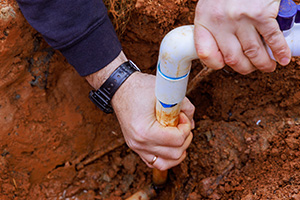 Introduction to Leak Detection
Introduction to Leak Detection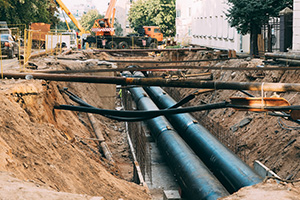 Introduction to Underground Pipe Location
Introduction to Underground Pipe Location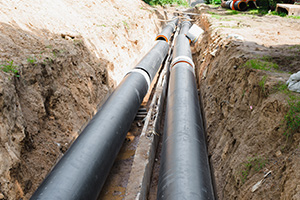 Introduction to Excavation Services
Introduction to Excavation Services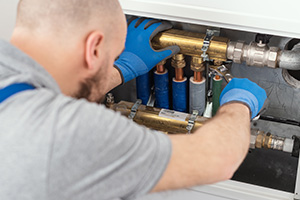 In the realm of business operations, where smooth functioning is paramount, a well-maintained plumbing system is often taken for granted—until something goes wrong. However, proactive measures can prevent such catastrophes, saving businesses from costly repairs, downtime, and potential damage to their reputation. This guide serves as a comprehensive resource for business owners, emphasizing the importance of preventative plumbing maintenance and providing a checklist to streamline their efforts.
In the realm of business operations, where smooth functioning is paramount, a well-maintained plumbing system is often taken for granted—until something goes wrong. However, proactive measures can prevent such catastrophes, saving businesses from costly repairs, downtime, and potential damage to their reputation. This guide serves as a comprehensive resource for business owners, emphasizing the importance of preventative plumbing maintenance and providing a checklist to streamline their efforts.